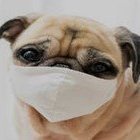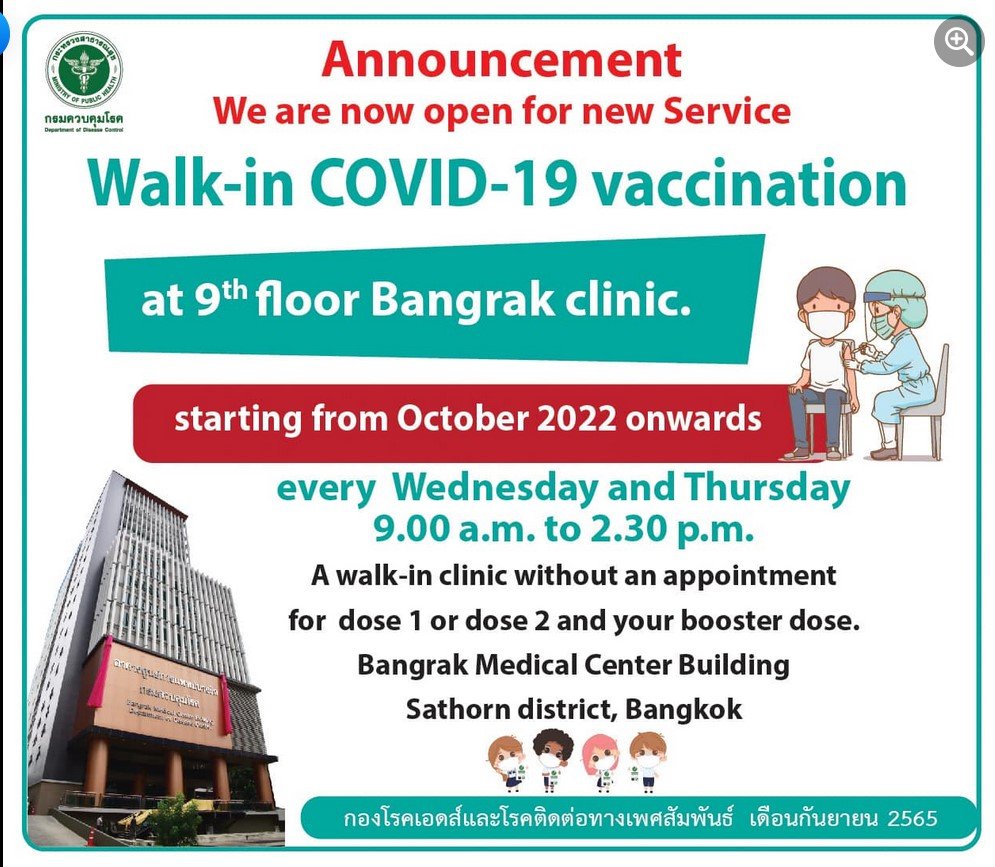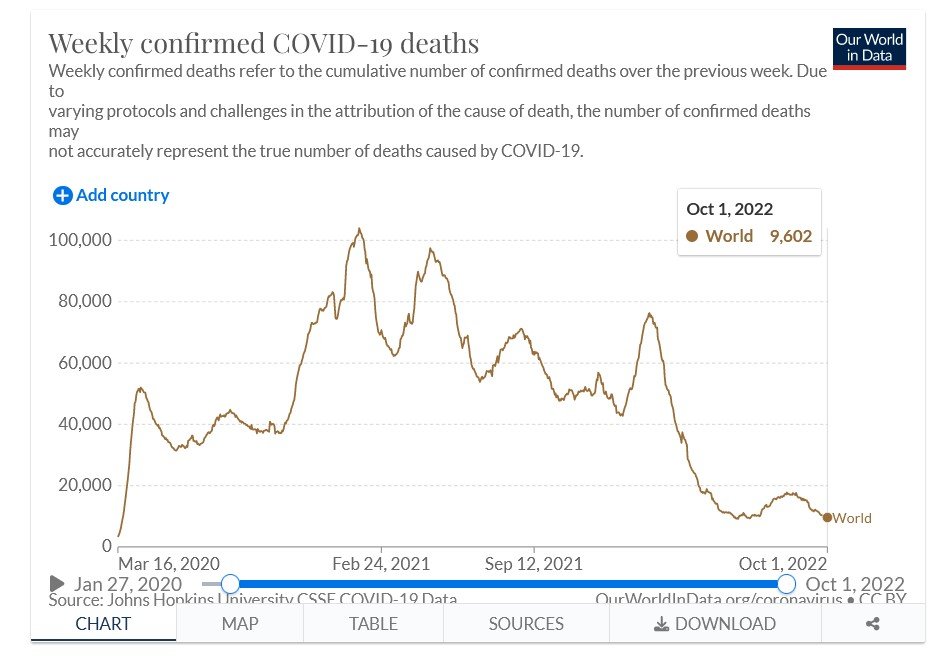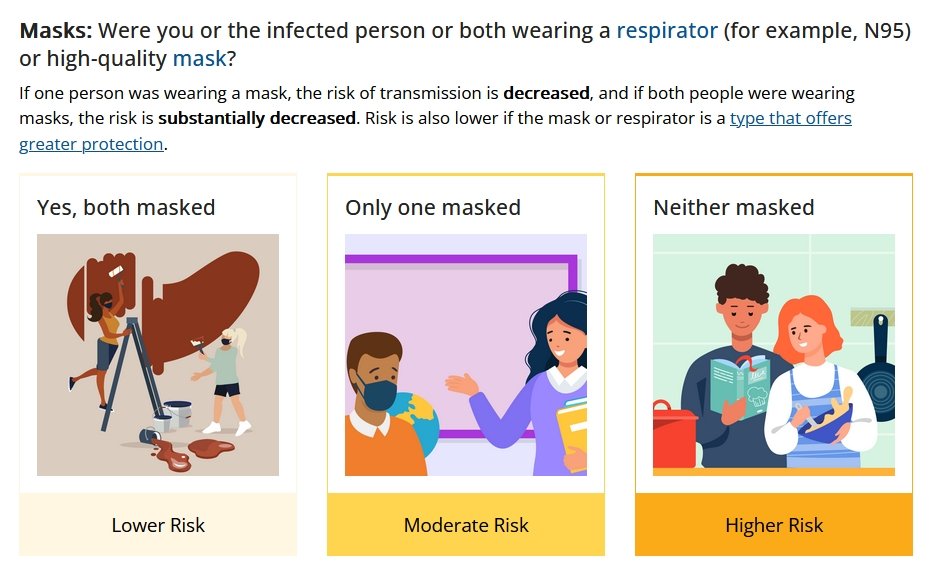-
Posts
36,950 -
Joined
-
Last visited
-
Days Won
6
Content Type
Events
Forums
Downloads
Quizzes
Gallery
Blogs
Everything posted by TallGuyJohninBKK
-
From a televised MoPH leadership public meeting this morning: Now they are: Ooops.... now they're not! ???? A bit weird... They all started the meeting wearing their masks. Then they took them off to pose side by side for some photos... And then after that, most of them seemed to carry on with the meeting sans masks... But for purposes of this thread.. I should add... they weren't holding this meeting either in a cinema or public transportation conveyance, as far as I know! ???? https://www.facebook.com/fanmoph/videos/437581005145415/
-
Some added confirmation, posted Oct. 1, by the National News Bureau of Thailand (the government) of the OP report in this thread: "The Ministry of Public Health has said it will maintain the mandate that people wear masks on public transportation and at cinemas to minimize health risks and ensure public safety. The Public Health Ministry’s Department of Health held a press conference to address sanitation and environmental health standards as Covid-19 is set to be reclassified from a dangerous communicable disease to a communicable disease under surveillance on October 1. During the conference, Dr. Aekkachai Piansriwatchara, Deputy Director of the Department of Health, stated that the department still maintains the requirements for people to wear face masks and follow social distancing guidelines as much as possible when using public transportation or going to the cinema in order to ensure safety in crowded areas." https://www.facebook.com/nbtworld/posts/pfbid02p7Tj6Mgb5RPVG1sTKZpmARosjMqc2JgEuWGRDL77hQGszZgzaVNGWGoz9KcBPryNl The BKK Post also carried the same report, based on the same MoPH news conference, in an article posted to their website on Sept. 30. But in both cases, again, no elaboration of just what agencies/operators are supposed to be covered by this.
-
No, I believe that MoPH has announced this policy pertaining to public transport and cinemas, as reported in the OP and various other news sources including the BKK Post. These guys (the Thai government) come out with policies on various things all the time that are never ratified by the Parliament, but instead are passed by the PM's Cabinet or just announced by various ministries. What I don't know is what this policy will mean for the BTS system's current policy of only recommending face mask wear. And more broadly, I don't know how serious the public transport operators will be in enforcing it.
-
As far as this reported government policy is concerned.... The issue MAY be that BTS is not considered (by the MoPH) as "public transport," as it's operated by a private company, not a government agency... Now the interesting part will be...now that the MoPH has lately gone public with this new mask policy governing "public transport," will the BTS change again and go back to its prior policy of mandatory face mask wear.
-
Another poster above had the following explanation, which is technically true, but I dunno if it explains the policy reason... BTS might not be considered "public" transport as referenced in the government policy explained in the OP, because the BTS technically is operated by a private company. That might explain why the BTS for some time now has had its own policy of recommending facemask wear, but not requiring it, as they had previously. So, if that were the case, then the face mask public transport policy would apply to venues like BMTA buses and the Airport Rail Link line, which is run by the government's SRT agency... Unfortunately, the OP article doesn't elaborate on just what "public transport" entities their policy is going to apply to...
-

Thailand fully reopens from 1 October 2022
TallGuyJohninBKK replied to webfact's topic in Thailand News
NIH: ""Data are insufficient to support recommendations for or against the use of any vitamin, mineral, herb or other botanical, fatty acid, or other dietary supplement ingredient to prevent or treat COVID-19." -

Thailand fully reopens from 1 October 2022
TallGuyJohninBKK replied to webfact's topic in Thailand News
A narrow recitation of some facts.... But for the bigger picture: From your friends at the Mayo Clinic, as of Feb. 2021: "Can taking a vitamin D supplement prevent infection with the virus that causes the coronavirus disease 2019 (COVID-19)? Answer From William F. Marshall, III M.D. There isn't enough data to recommend use of vitamin D to prevent infection with the virus that causes COVID-19 or to treat COVID-19, according to the National Institutes of Health and the World Health Organization. ... in recent years two randomized clinical trials that studied the effects of vitamin D supplementation had less hopeful results. In both trials, high doses of vitamin D were given to people who had vitamin D deficiencies and were seriously ill — not with COVID-19. Vitamin D didn't reduce the length of their hospital stays or their mortality rates when compared with those given a placebo. Further research is needed to determine what role, if any, vitamin D and vitamin D deficiency might play in the prevention of and treatment of COVID-19." https://www.mayoclinic.org/diseases-conditions/coronavirus/expert-answers/coronavirus-and-vitamin-d/faq-20493088 AND From the National Institutes of Health as of May 2022: Dietary Supplements in the Time of COVID-19 Fact Sheet for Health Professionals "Data are insufficient to support recommendations for or against the use of any vitamin, mineral, herb or other botanical, fatty acid, or other dietary supplement ingredient to prevent or treat COVID-19." ... "measuring the impact on the immune system of vitamins, minerals, and other dietary supplement ingredients is difficult because the immune system is a complex network of organs, tissues, and cells; no single, straightforward measure of immune system function and resistance to disease exists." ... "Furthermore, the onset of disease can cause low (or sometimes high) nutrient concentrations; it cannot be assumed that the nutrient concentrations observed in these studies contributed to the onset of COVID-19 or its severity. In addition, many clinical trials in patients with COVID-19 had small samples, were not randomized or placebo-controlled, and measured multiple outcomes, complicating the interpretation of their results." https://ods.od.nih.gov/factsheets/COVID19-HealthProfessional/ -

Thailand fully reopens from 1 October 2022
TallGuyJohninBKK replied to webfact's topic in Thailand News
Vaccines are a drug, and a proven one for greatly reducing the risk of serious illness and death from COVID, as opposed to eating more broccoli and taking supplements. So your comment pretty well comes off as being anti-vaccine, e.g. "Just pointing out people shouldnt rely on drugs." -

Thailand fully reopens from 1 October 2022
TallGuyJohninBKK replied to webfact's topic in Thailand News
That too... But not instead of, or as a replacement for, their other primary recommendations. The key points message of the article are clear. From their list, in their order of priority by mention: "There are many steps you can take to reduce your risk of infection from the COVID-19 virus and reduce the risk of spreading it to others. The World Health Organization (WHO) and the U.S. Centers for Disease Control and Prevention (CDC) recommend following these precautions for avoiding COVID-19: Get vaccinated. COVID-19 vaccines reduce the risk of getting and spreading COVID-19. Avoid close contact with others. Avoid anyone who is sick. Keep distance between yourself and others if COVID-19 when you're in indoor public spaces if you're not fully vaccinated. This is especially important if you have a higher risk of serious illness." etc etc etc.... -

Thailand fully reopens from 1 October 2022
TallGuyJohninBKK replied to webfact's topic in Thailand News
A good article. Like their advice: wear face masks and get fully vaccinated. "If you have a weakened immune system or have a higher risk of serious illness, wear a mask that provides you with the most protection possible when you're in an area with a high number of people with COVID-19 in the hospital and new COVID-19 cases. ... An additional dose of a COVID-19 vaccine is recommended for people who are vaccinated and might not have had a strong enough immune response. In contrast, a booster dose is recommended for people who are vaccinated and whose immune response weakened over time. This includes many people with health conditions that cause them to have a higher risk of serious illness. People who have a moderately or severely weakened immune system should get an additional primary shot and a booster shot." -

Thailand fully reopens from 1 October 2022
TallGuyJohninBKK replied to webfact's topic in Thailand News
On the low side... That's why entities like the WHO and others have come along with their projections, based on excess mortality, of the real numbers, which are almost 3 times higher than the official ones. -

Thailand fully reopens from 1 October 2022
TallGuyJohninBKK replied to webfact's topic in Thailand News
As I said, show me where the good doctor claims that eating this or that will prevent one from getting ill from or dying from COVID. The BEST way to ensure you don't get ill from or die from COVID is to not catch the virus in the first place. And probably the second best way is to get fully vaccinated and stay up to date with them.... And along the way, do things to maintain a general good state of health. -

Thailand fully reopens from 1 October 2022
TallGuyJohninBKK replied to webfact's topic in Thailand News
Show me where he says that eating this or that will prevent you from getting ill with COVID or even dying from it.... -

Thailand fully reopens from 1 October 2022
TallGuyJohninBKK replied to webfact's topic in Thailand News
None of which are even mentioned as relevant factors in the article about the elderly woman who survived and her 70-year-old son who didn't. So you're making it up as you go along. -

Thailand fully reopens from 1 October 2022
TallGuyJohninBKK replied to webfact's topic in Thailand News
A 2020 story that proves absolutely nothing in the context of COVID official death tolls or estimated (higher) COVID death tolls... No one ever claimed EVERYONE who gets COVID dies, even the most elderly. But plenty of them do... including from your own report: "This comes a fortnight after the woman’s 70-year-old son died due to suspected coronavirus infection." -

Thailand fully reopens from 1 October 2022
TallGuyJohninBKK replied to webfact's topic in Thailand News
Actually it is... As The Atlantic article I cited above recounts.... (and no one serious was predicting the end of humanity, disregarding that part of your comment). When the U.S. reached its first 100,000 COVID deaths early in the pandemic, it was a frontpage story in the NY Times and news around the world... Today, at 350 COVID deaths per day, the U.S. is on a path toward ongoing COVID deaths running 100,000 plus per year (which only takes an average of 275 or so per day throughout the year). And people such as yourself seem not to care. And the scary part is, no one in the scientific community at this point, AFAIK, is willing to predict when it all might end with COVID... Especially when people like various posters here continue to oppose basic public health measures and proven safe COVID vaccines (nearly 13 BILLION doses given worldwide thus far, with only exceedingly rare serious adverse effects), both of which would help lessen the otherwise ongoing COVID death toll. -

Thailand fully reopens from 1 October 2022
TallGuyJohninBKK replied to webfact's topic in Thailand News
And what that language actually means is, as it has been throughout the pandemic, that the "official" death counts reported by the various governments invariably are undercounts to reality. That's how you get from having a 6.5 million official COVID deaths count worldwide, to multiple studies saying the real tally of deaths caused by COVID has been in the 15+ million range, as cited above. The reality is WORSE than the official figures reflect, not better. -

Thailand fully reopens from 1 October 2022
TallGuyJohninBKK replied to webfact's topic in Thailand News
I'll start helping with a "return to normalcy" when there are LOT less than almost 10,000 people dying from COVID per week worldwide, which is the current "official" rate... Including more than 2,000 per week in the U.S. alone. source link And re the U.S., per Johns Hopkins: "In the US, around 400 people die every day due to COVID-19, more than triple the average number who die from influenza." https://myemail.constantcontact.com/--COVID-19-Updates---September-27--2022.html The ‘End’ of COVID Is Still Far Worse Than We Imagined Even now, the coronavirus is killing three times as many people as the flu. https://www.theatlantic.com/health/archive/2022/09/covid-pandemic-end-worse-than-flu/671514/ -
The U.S. Fed has been raising target interest rates several times already, and is planning several more increases in the coming year. Best U.S. multi-year CD rates are already now in the 3-4% range, and expected to go higher in the coming months. My Thai deposit account is paying 1%. That's part of the reason the USD has been doing so well against the THB lately, is people are more interested in investing in dollars right now compared to the baht because of the wide disparity in returns.
-

Thailand fully reopens from 1 October 2022
TallGuyJohninBKK replied to webfact's topic in Thailand News
Facts and credible, cited sources are inconvenient truths to the "crying wolf" types... -

Thailand fully reopens from 1 October 2022
TallGuyJohninBKK replied to webfact's topic in Thailand News
Estimates that between 15 million and 20 million people died from COVID around the world up through 2021, well above the official figure of 6.5+ million. Many of those were during 2020 before the arrival of mRNA vaccines, which have been credited with saving 20 million other people during 2021 who otherwise would have died from COVID had they not been vaccinated. You think COVID was "crying wolf"? How many millions more would you want dead before it wasn't "crying wolf" in your view? ------------------------------- "Although reported COVID-19 deaths between Jan 1, 2020, and Dec 31, 2021, totalled 5·94 million worldwide, we estimate that 18·2 million (95% uncertainty interval 17·1–19·6) people died worldwide because of the COVID-19 pandemic (as measured by excess mortality) over that period." http://www.thelancet-press.com/embargo/COVIDexcessmortality.pdf 14.9 million excess deaths associated with the COVID-19 pandemic in 2020 and 2021 New estimates from the World Health Organization (WHO) show that the full death toll associated directly or indirectly with the COVID-19 pandemic (described as “excess mortality”) between 1 January 2020 and 31 December 2021 was approximately 14.9 million (range 13.3 million to 16.6 million). https://www.who.int/news/item/05-05-2022-14.9-million-excess-deaths-were-associated-with-the-covid-19-pandemic-in-2020-and-2021 COVID-19 vaccines saved an estimated 20 million lives in 1 year COVID vaccines reduced the potential global death toll during the pandemic by almost two-thirds in their first year, saving an estimated 19.8 million lives, according to a mathematical modeling study yesterday in The Lancet Infectious Diseases. https://www.cidrap.umn.edu/news-perspective/2022/06/covid-19-vaccines-saved-estimated-20-million-lives-1-year -

Thailand fully reopens from 1 October 2022
TallGuyJohninBKK replied to webfact's topic in Thailand News
You read wrong: https://www.cdc.gov/coronavirus/2019-ncov/your-health/risks-exposure.html "Masking is a critical public health tool for preventing spread of COVID-19, and it is important to remember that any mask is better than no mask. To protect yourself and others from COVID-19, CDC continues to recommend that you wear the most protective mask you can that fits well and that you will wear consistently. Masks and respirators are effective at reducing transmission of SARS-CoV-2, the virus that causes COVID-19, when worn consistently and correctly." AND "Respirators are made to protect you by filtering the air and fitting closely on the face to filter out particles, including the virus that causes COVID-19. They can also contain droplets and particles you breathe, cough, or sneeze out so you do not spread them to others." https://www.cdc.gov/coronavirus/2019-ncov/prevent-getting-sick/types-of-masks.html














